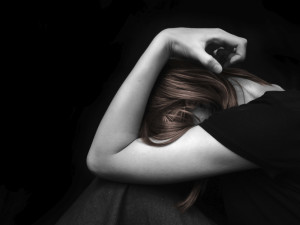 Most of us are pretty good at hiding how we feel, particularly when we are feeling really low.
Most of us are pretty good at hiding how we feel, particularly when we are feeling really low.
We are embarrassed about losing our composure. We struggle to fight back tears if they start welling up. We avoid situations that might trigger an emotional breakdown. If such a situation is unavoidable, we prepare ourselves by summoning up every bit of strength we have to maintain emotional control.
We are slow to recognize, or accept, that we might need help to deal with a deteriorating outlook and mood.
Our success at hiding how we feel makes it difficult to recognize, and for the medical community to diagnose and treat, low mood.
What could low mood possibly have to do with car crash cases?
Don’t injured victims of car crashes giggle all the way to the bank?
The truth is that I pass the box of tissues to one or another of my clients on an almost daily basis during office consultations. Every one of my clients is suffering a loss. Financial loss and associated stress, with expensive therapies and lost income, is a given.
The day to day, though, is worse. The loss of a pain free, or relatively pain free, existence is far worse.
The financial compensation I pursue for my clients is compensation for those losses.
The fact that one-third of the claim gets paid to me in fees means that every one of my clients is going to end up significantly under-compensated.
It’s a hell of a lottery ticket.
I am bringing attention to this issue because helping people maximize the prospect of as full a recovery as possible is a passion of mine, and the diagnosis and treatment of low mood is a very important piece of that puzzle.
Medical science links low mood to poor injury recovery and the development of chronic pain conditions. In other words, the successful treatment of injuries is hampered and the likelihood of an injury developing into a chronic pain condition is increased with low mood.
It’s a vicious circle.
Injuries cause pain and financial and other stressors that lower mood. Low mood, in turn, hampers injury recovery.
And around and around it goes.
I am always on the lookout for this cycle. I probe my clients during our regular update consultations to get an accurate picture of how they are holding up.
When tears flow, I hand over the box of tissue and encourage them to get the help I know they need. I point out that spouses, other family members and friends are not equipped to provide the support and care that is needed.
I explain the vicious cycle and how important it is to break out of that. Aside from the impact on their recovery, I explain the impact untreated depression can have on their legal claim for fair compensation.
I explain that the insurance company will blame them for failing to get the help that they need, and will argue that their claim should be reduced because of that failure. I explain that if depression remains untreated, the insurance company will argue that treating the depression will be a miracle cure.
Treat the depression and the chronic physical symptoms will magically disappear.
To ensure fairness, treatment for depression needs to happen before a claim is negotiated or a case goes to trial so that the “miracle cure” or “magic pill” can be tested. If someone close to you has suffered an injury, whether or not it occurred in a car crash, please be sensitive to the impact that injury is likely happening on that person’s mood.
Do your part to ensure that appropriate medical care is sought and followed through with.
Published January 23, 2011 in the Kelowna Capital News

0 Comments